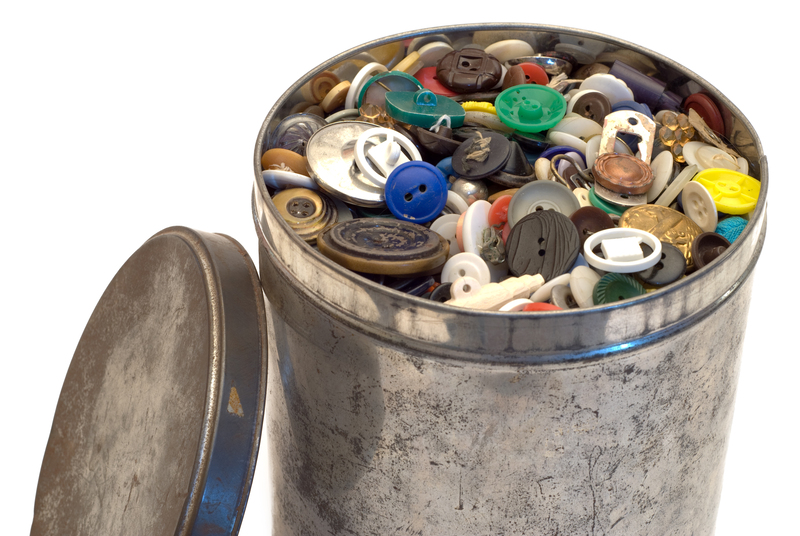How to Dispose of Hard Rubbish Effectively
Disposing of hard rubbish effectively is essential for maintaining a clean environment and reducing your carbon footprint. Hard waste includes items that don't fit into regular garbage bins, such as appliances, furniture, and large household items. Effective disposal involves responsible practices that prioritize recycling and sustainability. In this guide, we'll explore various strategies for disposing of hard waste in an eco-friendly manner. Whether you are clearing out your home or office, understanding how to handle hard
Understanding Hard Rubbish
Hard rubbish differs from regular household waste in both size and disposal methods. Items classified as hard waste include:
- Old furniture (e.g., sofas, tables, chairs)
- Broken or outdated electronics
- Large home appliances (e.g., refrigerators, washing machines)
- Construction materials (e.g., timber, bricks)
- Mattresses and bedframes
Before embarking on the task of hard rubbish removal, it's crucial to know if the items in question are accepted by local recycling programs or if special arrangements are needed for disposal.

Why Proper Disposal Is Important
Improper disposal leads to environmental degradation and is often illegal, resulting in hefty fines. By correctly managing hard waste, you:
- Conserve natural resources by facilitating recycling
- Reduce landfill waste and pollution
- Comply with local laws and regulations
- Support a sustainable community
Eco-friendly practices are vital for the future of our planet. Let's delve into the various methods of effective hard rubbish disposal.
1. Council Collection Services
Many municipalities offer scheduled hard waste collection services. These services typically require booking a pickup on designated dates. Advantages of using council collections include:
- Curbside pickup makes disposal convenient
- Often free or included in your waste management fees
- Ensures compliance with local disposal regulations
Check your local council's website for details on collection schedules and accepted items. This ensures that your waste will be disposed of responsibly.
2. Recycling Centers
Recycling centers accept a wide range of materials for repurposing, thus reducing landfill burden. Many facilities separate materials like metal, glass, and paper, giving them new life. Consider the following aspects when using recycling centers:
- Sort your items into appropriate categories to streamline the process
- Locate centers near you to minimize transport emissions
- Some centers offer drop-off points specifically for hard waste
Always ensure that the items you wish to dispose of are receivable at these centers.
3. Donation or Resale
One person's trash can be another's treasure. Before opting for disposal, consider whether your hard rubbish can be reused or repurposed. Here's how you can make a difference:
- Donate usable items to charities or thrifts stores
- Use online platforms to sell pre-loved items
- Join local buy-nothing groups and offer items for free
Donation and resale not only extend the life of your items but also support community resources and offer tax deductions in some cases.
4. Professional Removal Services
For those items that are unmanageable on your own, consider hiring a professional hard rubbish removal service. These services are advantageous as they:
- Offer convenience and efficiency
- Have know-how on eco-friendly disposal
- Provide tools and transport for heavy or bulky items
Ensure the company you select prioritizes recycling and ethical disposal practices. Check customer reviews and their environmental credentials.

Sustainable Disposal Tips
In addition to recycling and donating, integrating sustainable practices into your life can minimize the accumulation of hard waste. Here are some actionable tips:
- Choose products with minimal packaging and sustainable materials
- Practice the three Rs: Reduce, Reuse, Recycle
- Repair items rather than replace them
- Share, borrow, or rent items instead of buying new
Conclusion
Effective hard waste disposal is more than a duty--it's a responsibility toward a healthier planet. Being mindful about how you dispose of hard rubbish not only helps in maintaining a clean environment but also promotes sustainable living. Use local services, contribute to recycling efforts, and consider donation as first options. Remember, the goal is to reduce waste, recycle materials, and repurpose where possible.
Adopt these practices to ensure that your contribution leads toward substantial environmental benefits. By understanding and implementing these strategies, you can take a step forward in responsible waste management, turning a necessity into an opportunity for positive change.
Implement these tips and transform your approach to hard rubbish effectively. Let's make a sustainable future an attainable reality, one responsible disposal at a time!